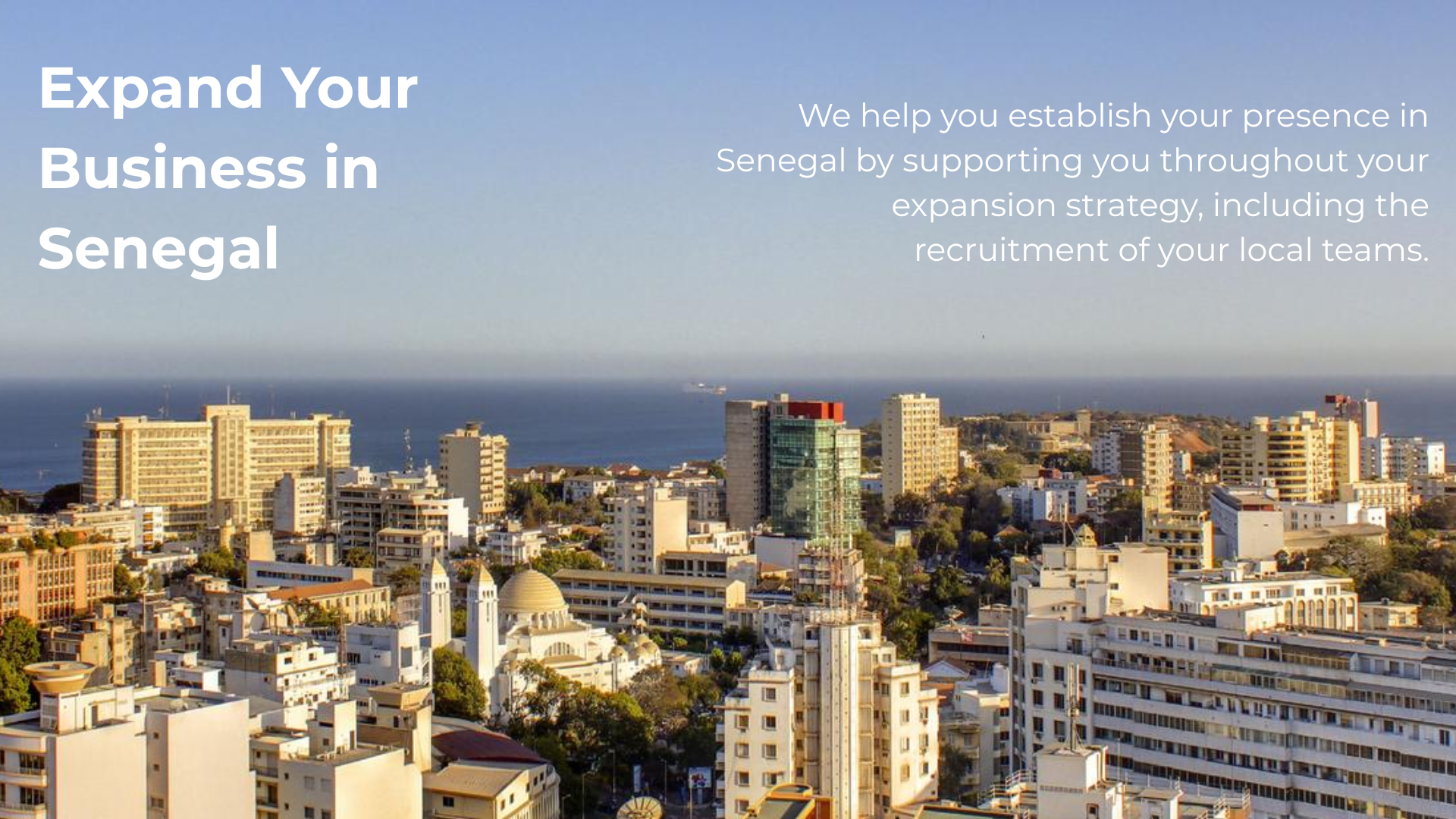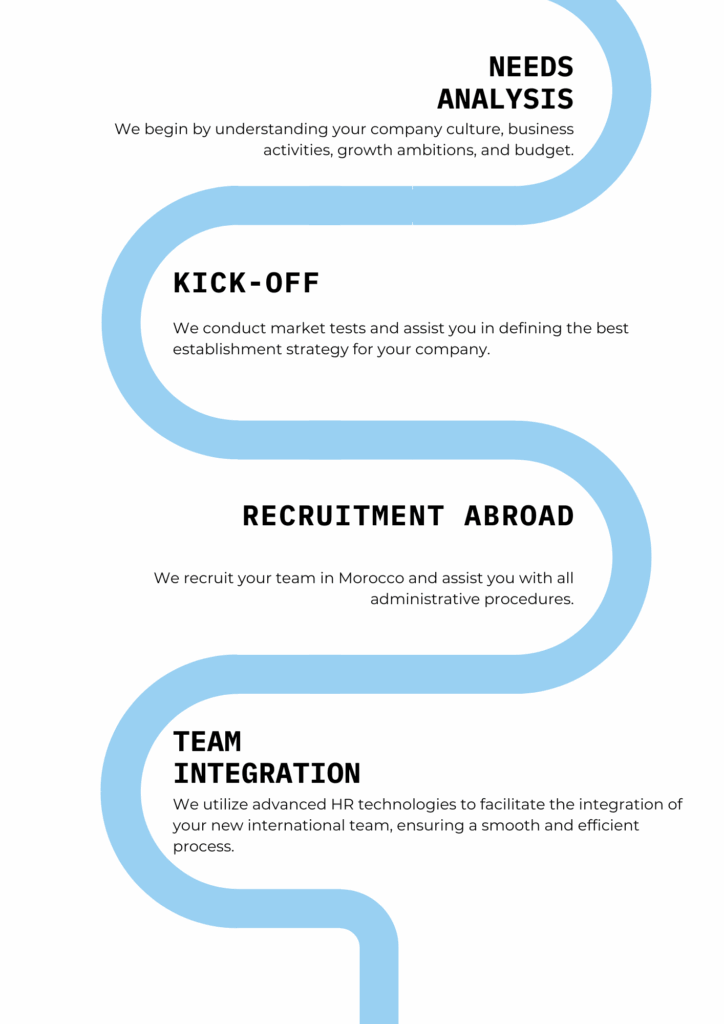
HOW WE RECRUIT IN SENEGAL

RECRUITMENT IN SENEGAL
Why Expand to Senegal ?
Senegal has established itself as a strategic destination for companies seeking to grow in West Africa. Its political stability, consistently growing economic environment, and quality workforce make it an especially attractive country for setting up long-term business operations.
Located at the westernmost point of the continent, Senegal benefits from an ideal geographic position at the crossroads of maritime, air, and commercial routes. Its capital, Dakar, is recognized as a major regional hub, well connected both to Europe and the rest of Sub-Saharan Africa. This is complemented by modern infrastructure — roads, industrial zones, and an international airport — facilitating rapid business establishment.
The country also boasts a young, dynamic, and predominantly French-speaking population. Each year, universities and vocational training institutions graduate thousands of qualified professionals in key sectors such as information technology, management, engineering, agriculture, and renewable energy. This is all within a culturally European-aligned environment that fosters smooth exchanges and swift integration of international standards.
Finally, Senegalese authorities actively support foreign investment through incentive programs such as tax relief, the creation of special economic zones, streamlined administrative procedures, and support from APIX (the National Agency for Investment Promotion).
All these factors make Senegal a prime destination for companies seeking controlled growth, skilled talent, and a sustainable foothold in the West African market.
What to Know About Working in Senegal
Minimum Wage (SMIG)
Legal Working Hours
Types of Contracts
Paid Leave
The guaranteed interprofessional minimum wage is set at 209.10 CFA francs per hour, approximately 55,000 CFA francs per month, which corresponds to about €83.85 per month based on a 40-hour workweek.
The legal workweek is 40 hours spread over 6 days, with a maximum of 8 hours per day, according to Senegalese labor law.
Common contracts include permanent contracts (CDI), fixed-term contracts (CDD), daily contracts, and apprenticeship contracts. Temporary assignments and wage portage arrangements are also used in certain sectors.
Employees are entitled to 2.5 working days of paid leave per month worked, totaling 30 working days (or 22 business days) annually.
FAQs
An employment contract must be drafted specifying the role, remuneration, duration, and working hours.
The employee must be registered with the Social Security Fund (CSS) and the IPRES (retirement pension scheme).
The contract must be registered with the competent labor inspection office.
For foreign employees, a work permit is required, issued by the General Directorate of Labor.
- Information Technology (IT) and digital services
- Renewable energy (solar, wind)
- Construction and civil engineering
- Agro-food and agricultural processing
- Transport and logistics
- Financial services and fintech
- Extractive industries (oil, gas, mining)
- Employees: up to 1 month, renewable once.
- Supervisors: up to 2 months, renewable.
- Executives: up to 3 months, renewable once.
- Durations must be specified in the contract according to the position and the applicable collective agreement.
